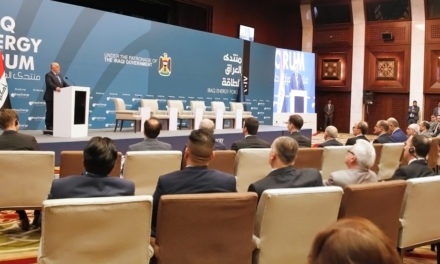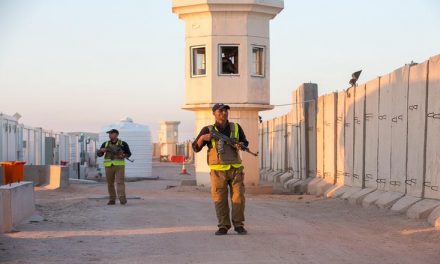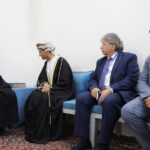Today, there are diverse Iraqi parties looking to overthrow the government of Adil Abd Al-Mahdi. They have a lot of causes driving them to be in the opposition. Observers maintain that opposition is important to reform the political system. However, these parties do not have a clear strategy to achieve this goal. Instead, they focus on explicitly criticizing the prime minister, as they accuse him of being behind many setbacks that Iraq is now experiencing. Indeed, these problems are deep-rooted in the Iraqi state, and if there is another person in this position in place of Abd Al-Mahdi, he woud have been caught in the same impasse.
Many political players are now trying to exploit the discourses of Grand Ayatollah Ali Al-Sistani. They insist that the religious sermon, delivered on 14 June from Karbala clearly condemned Abd Al-Mahdi’s government. Shortly after the sermon they announced officially their opposition to the current government. Notably, various observers affirmed that the majority of these players did not adhere to the recommendations of such sermons when they were in power, aiming to use such speeches in their consolidating effort to vote Abd Al-Mahdi out.
The opposition also accuses the prime minister to be very lenient with the Kurds, who have not respected the law of budget that commits them to hand over 250 thousand barrels of oil per day to the federal government. Accordingly, they say that Abd Al-Mahdi is unable to preserve the constitution nor is he able to protect the achievements accomplished during the rule of his predecessor, Haidar Al-Abadi. They also fear that Abd Al-Mahdi might allow the Kurdish forces to return to Kirkuk city.
Several political forces are also accusing Abd Al-Mahdi of not being able to address the problem of the basic services that many Iraqi cities are suffering from. They always refer to what happened in Basra city during Abadi’s administration, and how its events compelled him not to be prime minister for a second term. They assure that the return of the protests to the streets of this strategic city sends a clear message to Abd Al-Mahdi that he will face the same fate as Abadi.
In the anti-corruption file, Abd Al-Mahdi is further criticized for forming an ineffective council to combat corruption. While this council has potential, it has been so far unable to bring any of the big corrupt politicians to justice. Political parties say that this council has become just like a propaganda tool that lacks the effectiveness to crackdown on the widely spreading corruption in Iraqi institutions.
In recent weeks, ISIS has been able to put the security of the Capital, Baghdad, in danger. It managed to threaten the area surrounding Baghdad. Also, it launched many terrorist attacks against people and security forces in the provinces located north of Baghdad. The opponents claim that the decisions Abd Al-Mahdi has taken to counter terrorism are not suitable to restrict the movements of ISIS; and thus, ISIS is expected to reemerge in the near future.
Many also accuse Abd Al-Mahdi of being completely subject to the will of two great political blocs, Sairoon and Fatah completing his cabinet according to their orders. Opponents say that he draws the general path of the state in a way meeting the aspirations of these two alliances. His neglecting of others asserts that the main leaders of these blocks, Muqtada Al-Sadr and Hadi Al-Amiri, are the kingmakers deciding the future of this period in Iraq. Consequently, the alliances of Hikma, Nasr, and maybe the State of Law will work hard to take the side of opposition to stop this deterioration in the Iraqi state, as they allege.
Concerning the American-Iranian tensions, Abd Al-Mahdi is considered inactive geopolitically. Many politicians declare that he has not yet been able to produce a strategic vision to keep Iraq away from this dangerous game. They stress that the events that our region has recently witnessed show that the war might take place at any time. As a result, it is expected that the Strait of Hormuz will be closed. This will harm Iraq’s economy, which hugely depends on exporting oil through this seafront.
Abd Al-Mahdi is equally suffering from the problem of the Popular Mobilization Forces which consists of some factions operating against the interests of the Iraqi state. These groups have newly targeted the American Embassy in Baghdad, the foreign oil companies in Basra, and the American trainers working in Balad airbase; north of Baghdad. As a result, the company of Exxon Mobil threatened to leave its works in the Iraqi oilfields, and it furthermore warned of scraping a $53 billion deal with the Iraqi government. Abd Al-Mahdi’s competitors indicate that such events will negatively affect Iraq’s image and reputation in the international community. They also argue that he is, as commander in chief of the armed forces, responsible for not restraining the movements of these factions. They conclude that these unlawful actions could lead to crisis in the short term.
The demands of the opposition are legitimate and their concern are real. However, Iraqi political forces, whether supporters or opposition, know that these issues are deeply ingrained in the political process and no prime minister can resolve them on their own. Therefore, a more constructive criteria for supporting the current prime minister should not be his ability to completely resolve these issues in the coming years, but the extent of his willingness to tackle these with the help of the opposition. If the prime minister however does not appear to be willing to work on these issues in earnest, then the opposition should aim to vote him out, as it happens in any functioning democracy.

Diyari Salih
Diyari Salih has a Ph.D. in Political Geography from University of Baghdad and is doing a post-doctorate in International Relations at University of Warsaw. His research focuses on geopolitical issues in Iraq.










